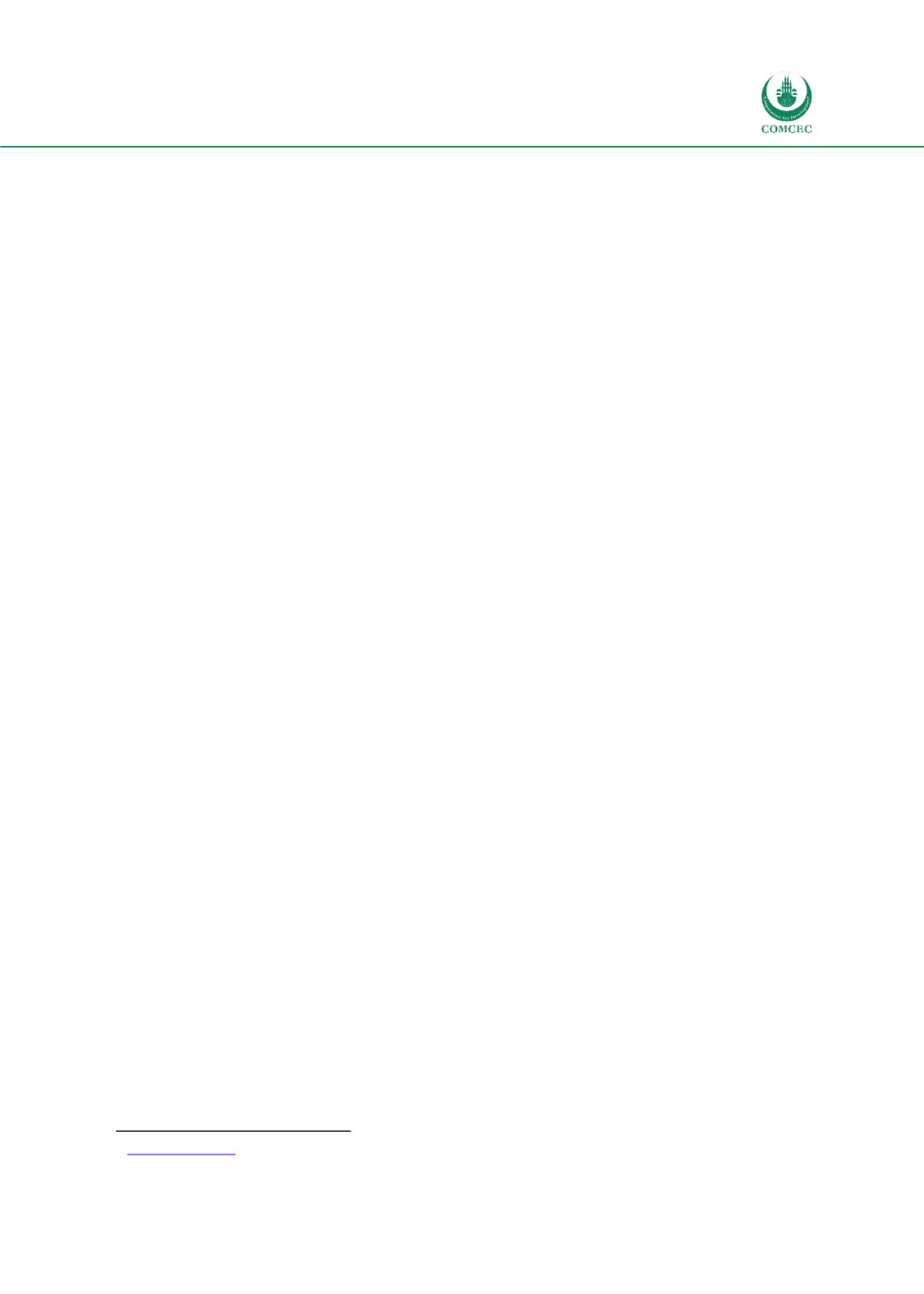

Improving the Border Agency Cooperation
Among the OIC Member States for Facilitating Trade
65
average of internal cooperation is somewhat better at 1.09. Interestingly, in external BAC
Mozambique achieves the full score of 2.00, while there are as many as seven countries scoring
0. For internal BAC, Burkina Faso, Chad, Gambia and Mali all achieve the full score of 2.00.
3.3.2.
Regional initiatives
East African Community (EAC)
The East African Community (EAC) is a regional intergovernmental organization comprising
six partner countries: Burundi, Kenya, Rwanda, South Sudan, Tanzania and Uganda. The EAC
Treaty was signed in 1999. The EAC is deepening cooperation among partner states in
political, economic and social spheres. It is based on four integration pillars, namely customs
union, common market, monetary union and political federation. The regional economic bloc is
rapidly advancing its integration process as reflected by the encouraging progress of the four
building blocks.
The customs union has been in force since 2005, whereby the member countries have agreed
to establish a free trade zone and a common external tariff (CET), with imports from third
countries being subject to the same tariff when sold to any EAC state. The common market has
been in force since 2010, meaning that the partner states have agreed on the free movement of
persons, workers, goods, services and capital. The East African monetary union was signed in
2013, laying the foundation for a monetary union within ten years. In addition, the EAC
members aim to harmonize monetary and fiscal policies; financial payment and settlement
systems; financial accounting and reporting practices; policies and standards on statistical
information; and establish an East African Central Bank.
99
Economic Community of West African States - ECOWAS
The Economic Community of West African States (ECOWAS) or Communauté économique des
États de l'Afrique de l'Ouest (CEDEAO) is a regional group comprising 15 West African
economies. It was founded with the aim of promoting economic integration across the region.
In more concrete terms, it intended to create a single large trading bloc through an economic
and trading union in order to achieve "collective self-sufficiency" for its member states.
Peacekeeping is also another key mission of the community. The ECOWAS consists of two
institutions to implement policies: the ECOWAS Commission and the ECOWAS Bank for
Investment and Development (EBID). The 15 ECOWAS members are: Benin, Burkina Faso,
Cabo Verde, Cote d’Ivoire, Gambia, Ghana, Guinea, Guinea-Bissau, Liberia, Mali, Niger, Nigeria,
Senegal, Sierra Leone and Togo – and 12 of them are OIC member states.
ECOWAS has established a solid base for coordination arrangements between inter-agency
cross-border collaboration across the region. ECOWAS is currently implementing a project
“Promoting West African Trade Integration” (WATIP) that aims at better implementation and
coordination of the regional economic integration process, increasing trade and establishing a
customs union in West Africa. The project accelerates the process of achieving an effective
customs union in West Africa and establishing a Trade Information System (TIS), which would
help to manage trade-related information efficiently and to make the information available to
all relevant stakeholders on one platform. It helps in drafting a common trade policy for
9
9 http://www.eac.int/ (accessed 30 August 2016).
















